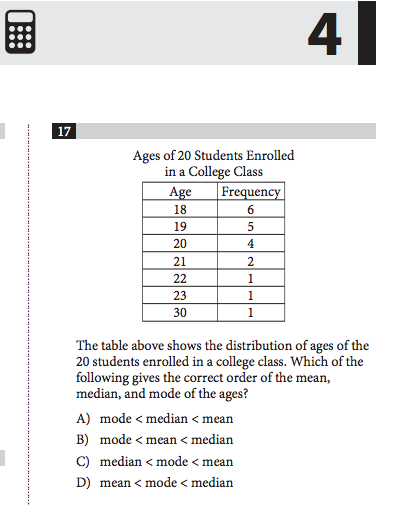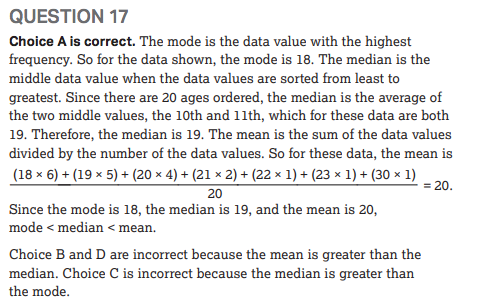Latest news about Bitcoin and all cryptocurrencies. Your daily crypto news habit.
- Contrary to popular belief, it does test some really useful skills, just in a non-obvious way.
- Test prep = Campbell’s law
- No offense to Daniel Chamovitz, but your typical high schooler does not give a shit about “What a Plant Knows.” See 1.
It’s been a while since I’ve blogged — mostly because I was job hunting (which was dreadful, but a story for another day). I actually wanted to really focus on some personal projects, but I’ve learned so much from my teaching experiences over the last 6 months that I wanted to share some thoughts.
I got super into teaching SAT prep in underserved communities — mostly because paid test prep is capitalism at its worst, but also because the students who sign up are really motivated. Teaching motivated students means that I no longer spend half the class trying to incept them into thinking learning is important.
During the spring semester, I taught through Minds Matter, where I was given the highest achieving students. The thing about teaching exceptionally bright students is that while they may come in motivated, they suffer no fools. The minute you hesitate or disengage as you try to mental math your way out of looking stupid, they stop paying attention. The more times this happens, the less faith they have in this two-hour, weekend time, which then affects every subsequent class. I probably prepared harder for my classes than I do some work presentations.
This served me well as I started teaching at Let’s Get Ready this summer, and I was again given the highest achieving students. And for the first time, my class is filled with an often overlooked minority: low-income Asian American students, many of whom are Chinese. My favorite student quote so far: “NYU doesn’t want us. They want the rich Chinese people coming from the mainland.” #CrazyRichAsians.
Ah, the model minority. When I told a friend of mine that this class is filled with students who scored between 770–800 on their Math diagnostic, he exclaimed that these are not the students who need my help, that they’re going to do fine in life no matter what. He’s wrong.
We fail students in different ways. Maybe we fail them by being careless in teaching fundamentals like reading. Or maybe we fail them by giving them unprepared teachers. These are obvious failures, but sometimes we fail in non-obvious ways. We fail our most motivated students when we forget that there’s more to learning than getting high scores.
The SAT is not just about memorizing facts and formulas to get a perfect score. Sure, it’s proven to be a bad predictor for college success, but to be honest, I think college success is a bad predictor for long-term success. The Reading section in particular ain’t bad. A good number of the problems focus on understanding another person’s point of view and perspective. I spend half my life doing this at work. As a product manager, my job is basically to understand people — everyone from our users to the cross functional teams that approve our launches. But you don’t have to take my word for it — two of the four 21st century skills are communication and collaboration.
But it’s not obvious how the SAT relates to this! As a student, all I feel is annoyance that I have to read an incredibly dry article about plants or something (again, no offense, just being honest).
The Math section also has some gems when it comes to logical thinking. The ones I like are the ones where there are multiple ways of getting the answer, but some are significantly easier than others. Here’s an example:
Anyone who knows what a mode, median, and mean are can figure this out by brute forcing calculations. And the College Board will tell you to do just that — check out that gnarly formula:
I mean, they put it in the Calculator section for fuck’s sake. But if you think logically, the mode and median are really easy to get and are less susceptible to outliers than the mean. With this in hand, the problem becomes way easier. Fast forward to post-high school, I spend the other half of my work life trying to find simple solutions to complex problems. But you again don’t have to take my word for it: the other two 21st century skills are critical thinking and creativity, both of which are essential for this type of problem solving.
So somehow, whether on purpose or not (let’s say on purpose and assume the College Board really does care 🙈), the SAT is testing 21st century skills that are important for the future — we just have to make it clearer to students. Note that I’m not saying I believe in high-stakes testing or the SAT in general, just that it’s not all gloom and doom.
The last thing I want to point out is that some people underestimate what it can mean to have role models in your life who have grown up like you. These are often the same people who oppose affirmative action in any way (I’m not going to argue for or against this here, just pointing it out). These are also often the same people who have never lacked this type of role model in their life.
As a kid who lives in Flushing, with parents who didn’t attend college and don’t speak English well, who every day of your life remind you (without ever saying it) of the sacrifices they’ve made to give you a chance, with friends who, at the end of the day, are competing with you — where do you go for assurance that having your own dreams is okay and advice on how to achieve them? I think every minority kid struggles with something like this, and we’re doing a very bad job of increasing diversity across the board (African-Americans in tech, Asians in media, women in leadership positions, etc.).
Not trying to end on the depressing note of diversity today, so instead will pub the many opportunities to volunteer and make an impact on the youth in your community. Check out Minds Matter, Apex (in NYC), and Let’s Get Ready.
Less Boring SAT was originally published in Hacker Noon on Medium, where people are continuing the conversation by highlighting and responding to this story.
Disclaimer
The views and opinions expressed in this article are solely those of the authors and do not reflect the views of Bitcoin Insider. Every investment and trading move involves risk - this is especially true for cryptocurrencies given their volatility. We strongly advise our readers to conduct their own research when making a decision.


